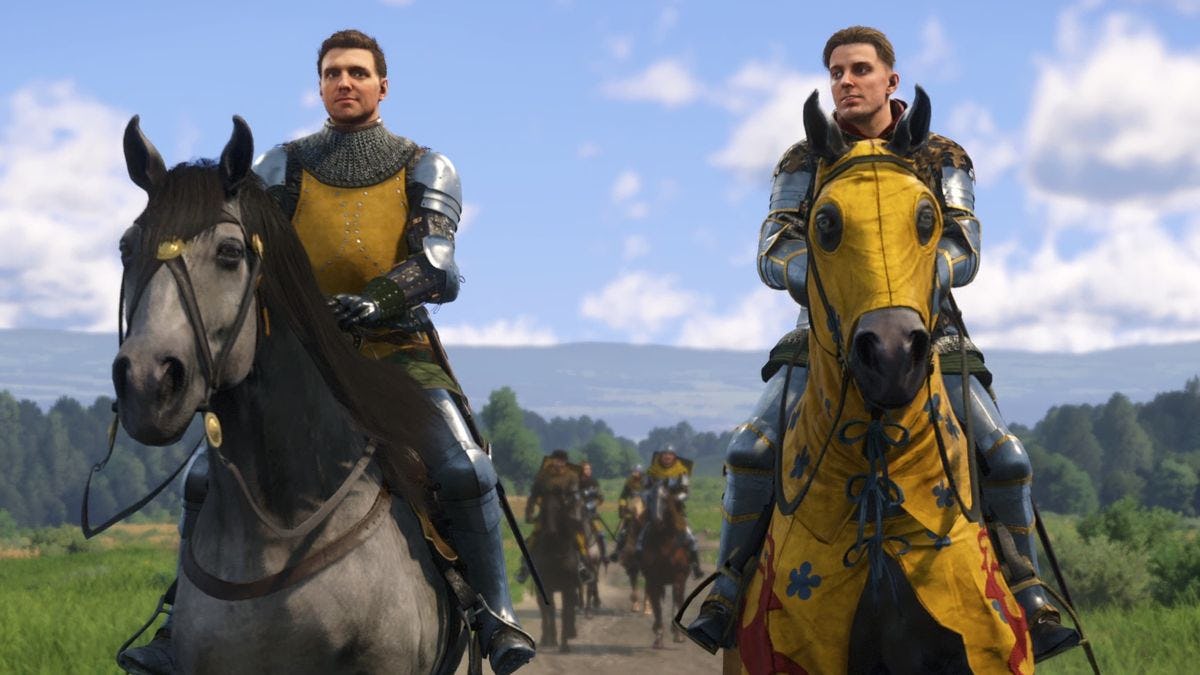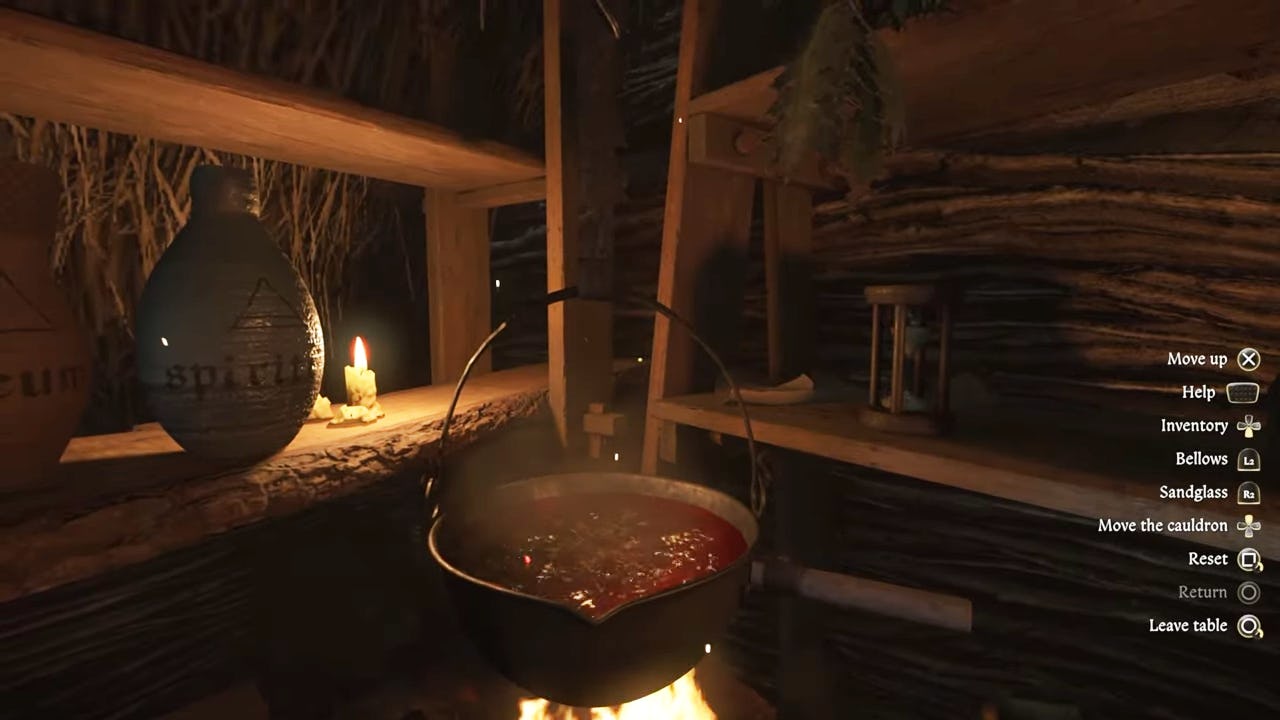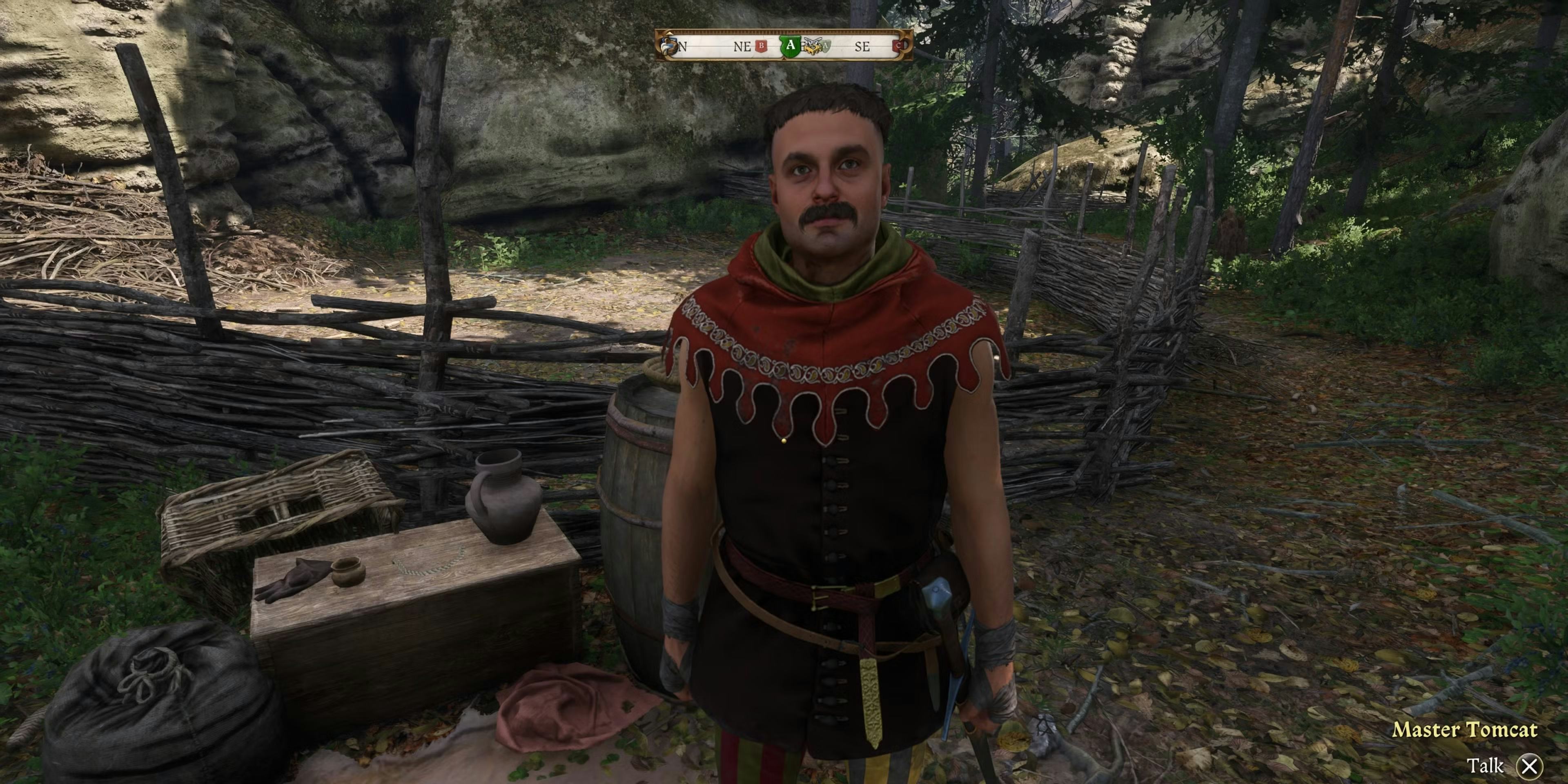
I’ll never forget what I felt the first time I escaped the underground prison at the start of The Elder Scrolls IV: Oblivion. Like many players experiencing Bethesda’s work for the first time in 2006, I’d never played this style of role-playing game. The freedom to explore (what felt like) a limitless world full of scary forests, dense cities and settlements, and all manner of interesting people to meet was a new sensation, one that wasn’t possible on the consoles that came before the 360 and PlayStation 3. I’d spend dozens upon dozens of hours that summer embarking on an adventure full of surprises, unlike anything I’d played before.
I’m about 50 hours into Warhorse Studios’ Kingdom Come: Deliverance II, and for the first time in 18 years, I feel like I’m experiencing that fateful “Oblivion summer” all over again. Deliverance II is not a game I had pegged as being one of my favorites of the year. But its early-Bethesda-like approach to the genre has captured me in a way I can’t stop thinking about.
Deliverance II never seemed like it would be my kind of game. Fans of the first game and its sequel often talk about the impenetrable systems and mechanics that make up the core experience of Warhorse’s historically accurate take on the modern RPG epic. It’s certainly interesting that a developer sought to inject a sense of realism into the genre, but it's typically repellent for the kind of player I am these days. A game where I have to babysit my protagonist around the clock into eating, bathing, and taking up a job to make ends meet doesn’t sound like fun when I can cast magic with the touch of a button in something like Skyrim.
However, as part of my due diligence of playing the year’s biggest releases, I was up for finally giving it a shot. After reviewing the relatively easy Assassin’s Creed Shadows, I was game for a title willing to challenge me rather than make me feel like a badass at every corner.
The early going was as difficult as I expected. In Deliverance II, you play as Henry of Skalitz, the son of a Blacksmith turned faithful soldier to the King of Bohemia and the Holy Roman Empire (modern Czech Republic). And after a few devastating mishaps during a simple mission abroad, you and your privileged best friend are left for dead with nothing in a strange land. And boy, does this game make you feel it.
Henry sucks. At just about everything. He can’t fight. He can’t talk his way out of most sticky situations. He’s broke. Has no maidens or fashion sense. He can’t even afford a proper bath. The first eight hours of Deliverance II are the game beating you into the ground. Deliverance II’s tutorials feel like they were made comedically bad on purpose, as they involve showing the player walls of text rather than the more approachable ways most modern games teach.

But there was a moment when things finally clicked. Of all the early jobs Henry can take up, picking wild flowers and becoming a master alchemist seems most aligned with the intelligent master negotiator I wanted Henry to become. Like the rest of the game, however, making this dream a reality wouldn’t be easy.
Henry doesn’t open a menu at an alchemy bench, bring the required materials, and magically produce bottled goods for profit. Here, making potions is as tangible as the rest of the game. You’re physically mixing the correct amount of herbs, following instructions to the tee using different liquid bases, boiling ingredients for exact amounts of time, and so on. When making Savior Schnapps (the consumable required to quick save), leaving your nettle and wine on the fire for a second too long before adding belladonna results in weaker potions, or worse, wasted materials.
Deliverance II borrows heavily from Bethesda’s style of player progression in that you get good by doing more. Spend a bunch of time getting into sword fights, and you’ll get better at sword fighting. Drinking more alcohol, you’ll increase Henry’s ability to hold his liquor over time. Brew potions and you’ll become a master mixer.
Henry sucks. Like at everything. He can’t fight. He can’t talk his way out of most sticky situations. He’s broke. Has no maidens or fashion sense. He can’t even afford a proper bath.
However, earning new abilities in these individuals' stats feels remarkably secondary to the journey you’re on as a player. The backbone of leveling up in Deliverance II isn’t the EXP you’ll get from completing quests or goals. It’s the actual experience and growth of you, the player. In hour three, I kept screwing up the most basic potion required to make real progress in the game. By hour 15, I was making Savior Schnapps without looking at my recipe book, and the rate at which I was leveling up my alchemy reflected that.
Every part of Deliverance II reflects this satisfying loop. I was useless in fights and actively avoided them as much as I could in the first dozen hours. But I eventually found a teacher willing to show me the ins and outs of sword technique. I practiced for hours with this instructor, learning to read tells, finding the right combos, getting into fights with random bandits while on the road, until I was able to handle my own. When I stumbled on a secret cabal of thieves in the south of the game’s first map, I learned how to pick locks and use the cover of night to my advantage. I began to make novice swords and horseshoes with a friendly blacksmith willing to give me a place to stay.
Once this approach to progression clicks into place, the road to competence in Deliverance II isn’t the albatross so many of its fans make it out to be. It’s what makes things so fun. In my long journey towards becoming a decent swordsman, not knowing how to fight meant verbal standoffs had high stakes, and each opportunity improved my speech skills. Mastering stealth eliminations opened up entirely new avenues to the game’s immersive sim-style quests that let players accomplish fairly simple tasks however they’d like. This, in turn, improved my thievery and sneaking abilities. It’s a careful interlocking progression system that still leaves plenty of room for character customization like any other RPGs.

It’s something that I loved about playing Oblivion for the first time. As much as I loved its follow-up Skyrim to bits, there’s a noted change in how much Bethesda is willing to push back against the player. As soon as you find a bow and arrow in Skyrim, you’ve essentially become the master and ruler of Tamriel. Skyrim provides one of gaming’s most satisfying power fantasies. But by its third re-release, I longed for the friction my first Bethesda game provided. It’s something that Bethesda’s subsequent games have slowly peeled away, to the point that its most recent title feels like it’s constantly trying to make me feel like the most special person in its vast universe.
While it’s not the technical revelation that Oblivion was when it first launched all those years ago, Deliverance II manages to recreate the sense of wonder. It’s not afraid to demand that you grind and get good at something. It’s not afraid to punish its players for screwing something up, and prioritizing that lesson over making me feel like a god. In doing so, it makes its remarkably grounded world feel fun and dangerous and full of unknown knowledge. Paired with excellent writing that demands you pay attention to NPCs and your environment, Deliverance II feels like it was made by an alternate universe Bethesda Game Studios, one that doubled down on making the kinds of games from before the Fallout 3 days.
Henry of Skalitz might be a down on his luck schmuck looking to make his way in the very real middle ages. But as I discover and learn more in his sprawling adventure, his exploits don’t feel that far removed from the summer I spent exploring Elder Scrolls’ Cyrodiil as a Wood Elf 18 years ago. Deliverance II is the Oblivion sequel I didn’t realize I wanted, and I’m damn glad that I gave this beloved RPG a chance.







